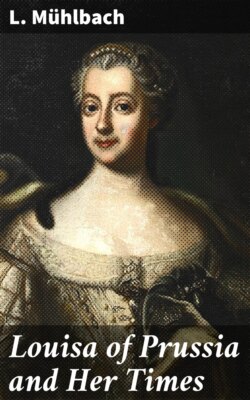Читать книгу Louisa of Prussia and Her Times - L. Muhlbach - Страница 7
На сайте Литреса книга снята с продажи.
Оглавление“‘Triumph! triumph! es siegt die gute Sache!
Die Turkenknechte flieh’n!
Laut tont der Donner der gerechten Sache,
Nach Wien und nach Berlin.’”
[Footnote:
“Triumph! triumph! the good cause conquers
The despots’ minions flee!
The thunders of the just cause Reach Vienna and Berlin!”
This hymn was universally sung at that time (1797) in all the German
States, not merely by the popular classes, but likewise in the exclusive
circles of the aristocracy. It is found in a good many memoirs of that
period.]
“Indeed, it is a very fine song,” said Thugut, “and can you tell me who has taught you this song?”
“No, your excellency, I could not do it. Nobody knows it besides. It was printed on a small handbill, and circulated all over the city. A copy was thrown into every house, and the working-men, when setting out early one morning, found it in the streets.”
“And did you not assist in circulating this excellent song, my dear Mr. Wenzel?”
“I? God and the Holy Virgin forbid!” exclaimed Mr. Wenzel, in dismay. “I have merely sung it, like all the rest of us, and sung it to the tune which I heard from the others.”
“Well, well, you did right, for the melody is really pleasing. Such songs generally have the peculiarity that not a single word of them is true; people call that poetry. Now, you may go, my poetical Mr. Wenzel, and you others, whom the people sent with this pacific mission to me. Tell your constituents that I will this time comply mercifully with their wishes, and give them peace, that is, I will let them go, and not send them to the calaboose, as they have abundantly deserved. But if you try this game again, and get up another riot, and sing that fine song once more, you may rest assured that you will be taken to jail and taught there a most unpleasant lesson. Begone now!”
He turned his back on the trembling citizens, and took no notice of the respectful bows with which they took leave of him, whereupon they retired with soft but hasty steps, like mice escaping from the presence of the dreaded lion.
“And now, my dear count, as we have finished our breakfast, let us return to my cabinet, for I believe we have to settle some additional matters.”
